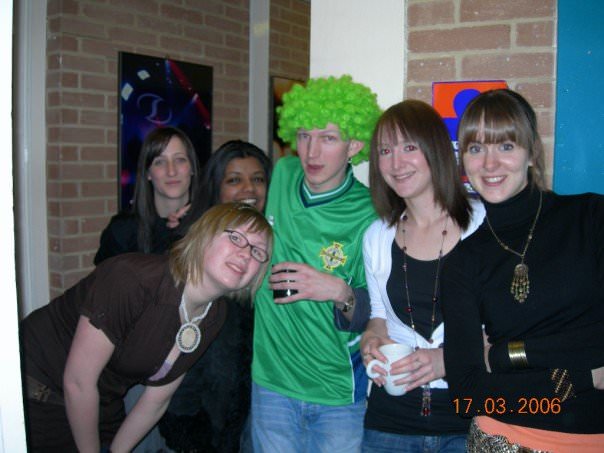Academic study trips are quickly becoming a cornerstone of the modern educational experience for college students. Far from being mere sightseeing excursions, these journeys are designed to complement classroom learning with real-world experiences that are both enriching and enlightening. Whether it’s the bustling streets of a foreign city or the quiet corridors of a historical museum, each location offers a unique educational opportunity.
For students, these trips are not just about stepping out of the academic bubble; they are about stepping into diverse environments that challenge their perceptions and expand their horizons. From the immersive language experiences in a non-native country to the hands-on learning in archaeological sites, academic trips transform theoretical knowledge into practical wisdom.
Take London, for example—a city rich in history, culture, and education. A college trip to London offers students firsthand exposure to world-renowned landmarks like the British Museum and the Houses of Parliament, blending historical education with contemporary relevance. This historic city serves as a live classroom where art, history, science, and politics intersect, offering students a multifaceted learning experience that is impossible to replicate through textbooks alone.
This holistic educational approach not only deepens their understanding but also inspires a greater appreciation for the subjects they study.
Enhanced Learning through Real-World Exposure
Exploring London offers a treasure trove of experiences for A-level and college students keen on discovering the layers of a historic city. A college trip to London means students can delve into some of the UK’s most iconic cultural and leisure sites: Buckingham Palace, the Houses of Parliament, the Tower of London, Big Ben, and The Shard. Food enthusiasts will relish the opportunity to taste global cuisines at countless eateries or try traditional British fare like jellied eels or pie and mash at a local street market.
Fashion students on college trips to London can navigate their way down Oxford Street or aimlessly wander through a labyrinth of market stands in Camden Town. Whatever the subject, the vibrant energy and eclectic style make an ideal combination for your student trip to London.
Students studying performing arts can marvel at the neoclassical theatres, while those interested in architecture might explore examples of Gothic revival. The Tate Modern and other cultural landmarks provide a vivid narrative of art and history that permeates the city. Business studies students will find the street art snaking through the financial district particularly intriguing, offering a contrast to the corporate environment. A visit to the Natural History Museum showcases an extensive collection of exhibits, from dinosaur fossils to displays on human evolution and marine life. Additionally, tea aficionados can expand their palates beyond Earl Grey by sampling a variety of Taiwanese teas available in the vibrant Chinatown.
Cultural Immersion and Language Skills
Academic trips provide a deep dive into new cultures, helping students to better understand and appreciate different ways of life. For instance, engaging with local traditions and participating in community activities can significantly enhance a student’s appreciation and understanding of diverse cultural practices. These experiences not only enrich students’ cultural knowledge but also bolster their language skills, especially when they practice communicating in the local language during their travels. Such immersive experiences enhance fluency and provide a practical application for language studies that textbooks simply cannot match.
Development of Critical Thinking and Problem-Solving Skills
Travel challenges students to think on their feet by solving real-world problems as they occur. From navigating public transportation in a foreign city to managing budgets, each decision requires careful thought and consideration. These experiences encourage students to apply their critical thinking skills in unfamiliar situations, fostering a type of learning that is profoundly impactful and vastly different from classroom settings.
Increased Engagement and Motivation
Seeing the real-world application of their studies can significantly boost students’ motivation. When students understand how academic concepts apply outside the classroom, their engagement in those subjects often increases. For example, witnessing firsthand the works of Shakespeare at The Globe Theatre in London or exploring historical sites relevant to their studies can rekindle their passion for learning and inspire greater dedication to their coursework.
Improvement of Social and Communication Skills
Travelling as a group during academic trips provides a unique social dynamic that isn’t often replicated in the classroom environment. Students must communicate effectively, collaborate on travel logistics, and navigate new social settings together. This setting encourages the development of interpersonal skills, including negotiation, persuasion, and empathy. By dealing with diverse groups of people and often working through language barriers, students enhance their ability to communicate across different cultural and social contexts. These improved social skills are essential for personal and professional success in an increasingly interconnected world.
Exposure to Global Perspectives
Academic study trips expose students to new ideas, cultures, and worldviews. For instance, visiting international historical sites and engaging with local experts in various fields can broaden students’ understanding of global issues. This exposure helps students appreciate different perspectives and challenges them to think globally. It encourages them to consider solutions to global problems, such as climate change or social inequality, from a more informed viewpoint. By understanding the complexities of the world beyond their local environment, students develop a more nuanced view of their role as global citizens.
Conclusion
The benefits of academic study trips for college students are extensive and multifaceted. From enhancing learning through real-world exposure to improving social and communication skills, these experiences provide students with invaluable opportunities for personal and educational growth. They also offer unique advantages in terms of career inspiration and networking, which can shape students’ futures in profound ways. Moreover, the boost in memory retention and learning makes academic content more engaging and accessible. Incorporating travel into college curricula not only enhances the educational experience but also prepares students for a successful and informed life beyond academia.


